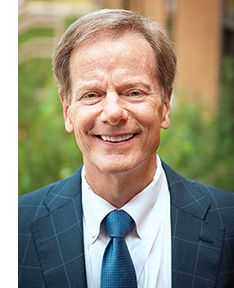For nearly 20 years, I indulged in the myths of addiction. Not long after I smoked marijuana for the first time, as a teenager in the suburbs of New York, I developed a baffling inability to “just say no” to drugs and alcohol. Today, as a man in long-term recovery, I know firsthand the damage caused by misunderstandings about this illness.

Affairs, Hazeldon Betty Ford
Foundation
Research has come a long way since 1974, when I first experimented with dangerous substances and discovered what I thought was the answer to my gnawing sense of inadequacy. Science shows that addiction is a brain disease. Psychological, social and spiritual emptiness fuel addiction, but they don’t cause it. Judging addicts or telling them to “shape up and just quit” accomplishes no more than saying the same thing to a cancer patient. Addicts and alcoholics have a medical condition.
My own addiction thrived on myths. I fit none of the stereotypes about addicts, so my loved ones and I convinced ourselves for years that I didn’t have a problem. My father is Bill Moyers, the journalist and former Southern Baptist minister. I grew up in a loving, faith-filled home. I went to college and pursued a successful career in journalism.
I also have a brain chemically susceptible to becoming dependent on mind-altering substances. My college buddies and I drank and experimented with drugs, as lots of young people do. I was the only one who became addicted.
Because addiction carries such a moral stigma, no one in my family wanted to acknowledge my problem at first, even after I got arrested following a night of binge drinking. Once my addiction became impossible to hide—I ended up living in a crack house—no one knew what to do. I kept telling myself I’d quit, believing it would be that simple.
Only after I admitted that I had a chronic illness over which I had no power did I step onto the road toward healing. I sought treatment several times before finally committing myself to the lifelong work of recovery. There is no magic cure for addiction, only treatment. Recovery begins with understanding—by the addict, by his family and loved ones, and by society at large. I pray that you can set aside whatever myths about addiction impede your understanding of this disease.
Did you enjoy this story? Subscribe to Guideposts magazine.






